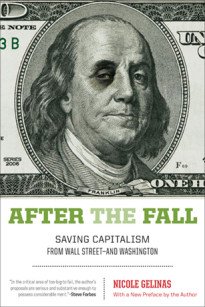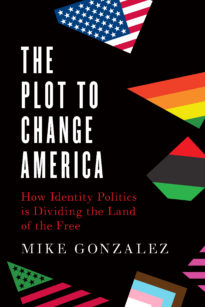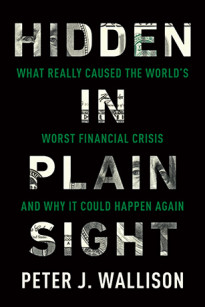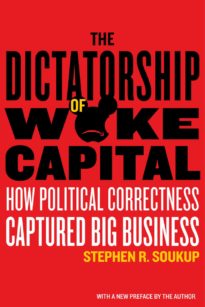Over the last century, the Left has been waging a slow, methodical battle for control of the institutions of Western civilization. During most of that time, “business” remained the last redoubt for those who believed in free people, free markets, and private property. In the last two decades, however, that has changed, and the Left has taken its long march to the last remaining non-Leftist institution. A small handful of politicians on the Right have sensed that something is wrong with American business and have sought to identify the problem and offer solutions. While the attention of high-profile politicians is welcome, to date the solutions they have proposed are inadequate, for a variety of reasons. This book provides a comprehensive overview of the problem and the players involved, both on the aggressive, hard-charging Left and in the nascent conservative resistance. It explains what the Left is doing and how and why the Right must be prepared and willing to fight back to save this critical aspect of American culture from becoming another, more economically powerful version of the “woke” college campus.
Free shipping on all orders over $40
The Dictatorship of Woke Capital
How Political Correctness Captured Big Business
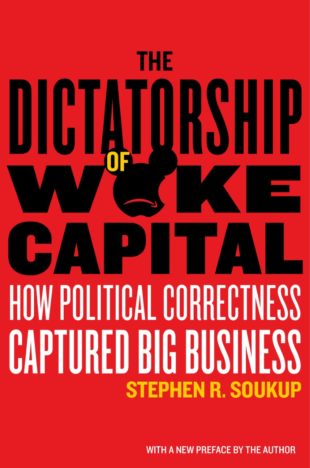
Publication Details
Paperback / 224 pages
ISBN: 9781641773010
AVAILABLE: 4/25/2023
- Media: Request a Review Copy
- Academia: Request an Exam Copy
About the Author
Stephen R. Soukup is the senior commentator, Vice President, and Publisher of The Political Forum, an “independent research provider” that delivers research and consulting services to the institutional investment community, with an emphasis on economic, social, political, and geopolitical events likely to have an impact on the financial markets in the United States and abroad.
Praise
Excerpt
The essential promise of ESG has always been that smart, justice-oriented investors can “do well by doing good.” The research done since the first edition of this book was published makes it pretty clear that this promise is a lie on both ends. ESG investing yields poorer returns over time, while doing absolutely nothing to advance the causes it purports to embrace. As Tariq Fancy concluded, it really is just a marketing scheme.
Given all of the information provided above, all the evidence suggesting that ESG is a failure, one might reasonably wonder what its enduring popularity says about American business, capital markets, and the future of the commercial economy. There are many answers to that question, but I think the best was provided by my friend Bob Feinberg. Bob was a consultant that my firm used to help sort through the subtleties of banking regulations and legislation when I first started in the financial service industry more than a quarter century ago. He was also one of the most interesting, eccentric, and knowledgeable people I have ever known. He used to say that after a lifetime of working in and around Washington, DC, he had learned to view the nation’s capital by one rule: “If you ever think you’ve grown too cynical about this town, that’s a good sign that you’re not cynical enough.”
I have concluded that this same rule applies to financial services and especially to the big Wall Street players. In the introduction to this book, I describe Larry Fink, the CEO of BlackRock, as a “true believer” in the power of woke capital. But that is incomplete. He is also a true believer in the power of Larry Fink, and in his need to do really well, whether or not he’s doing good.
One thing that investors and analysts have learned over the last two years is that a key factor distinguishing ESG funds from non-ESG funds that are otherwise almost identically composed is the commission charged. By some estimates, the commission for a fund with an ESG tag is, on average, 43 percent higher. Whether or not it is good for investors or even good for society and the environment, ESG is inarguably good for the firms that push it. Larry Fink didn’t build his company into the largest asset management firm in the world by accident, after all.
At this point, the cynicism works against free and fair markets and reinforces the political weaponization of capital. But it doesn’t have to be that way. The incentives can be changed.
If government is to play a positive role in pushing back against woke capital—and I think it must play some role—then the best way it can do so is by helping to change those incentives. Much is being done on the state level to alter incentives: aligning pension investments with state economies, focusing on state and local issues, rejecting appeals to broad global social justice schemes, etc.
Market players too should focus on incentives: eliminating the incentives to cheat investors with higher fees for ESG, creating incentives to encourage asset managers to take their fiduciary duties more seriously and more literally, and encouraging the industry to treat the political weaponization of capital as a breach of the trust between manager and client.
Adam Smith argued that self-interest in a commercial economy can be beneficial and, indeed, is the driver of a productive society. Self-interest motivates individuals to interact for mutual advantage and to pursue productive ends. Tocqueville added that the American system rather effectively encourages the fulfillment of “self-interest rightly understood.”
The self-interested aspect of capitalism remains evident in markets today, but it is rarely rightly understood. Indeed, ESG is an example self-interest wrongly understood.
The key to breaking the spell of woke capital is to expose the cynicism and selfishness inherent in ESG and the broader shareholder activism movement and to demonstrate that this scheme to enable investors to do well by doing good is—and always will be—unable to do either.


